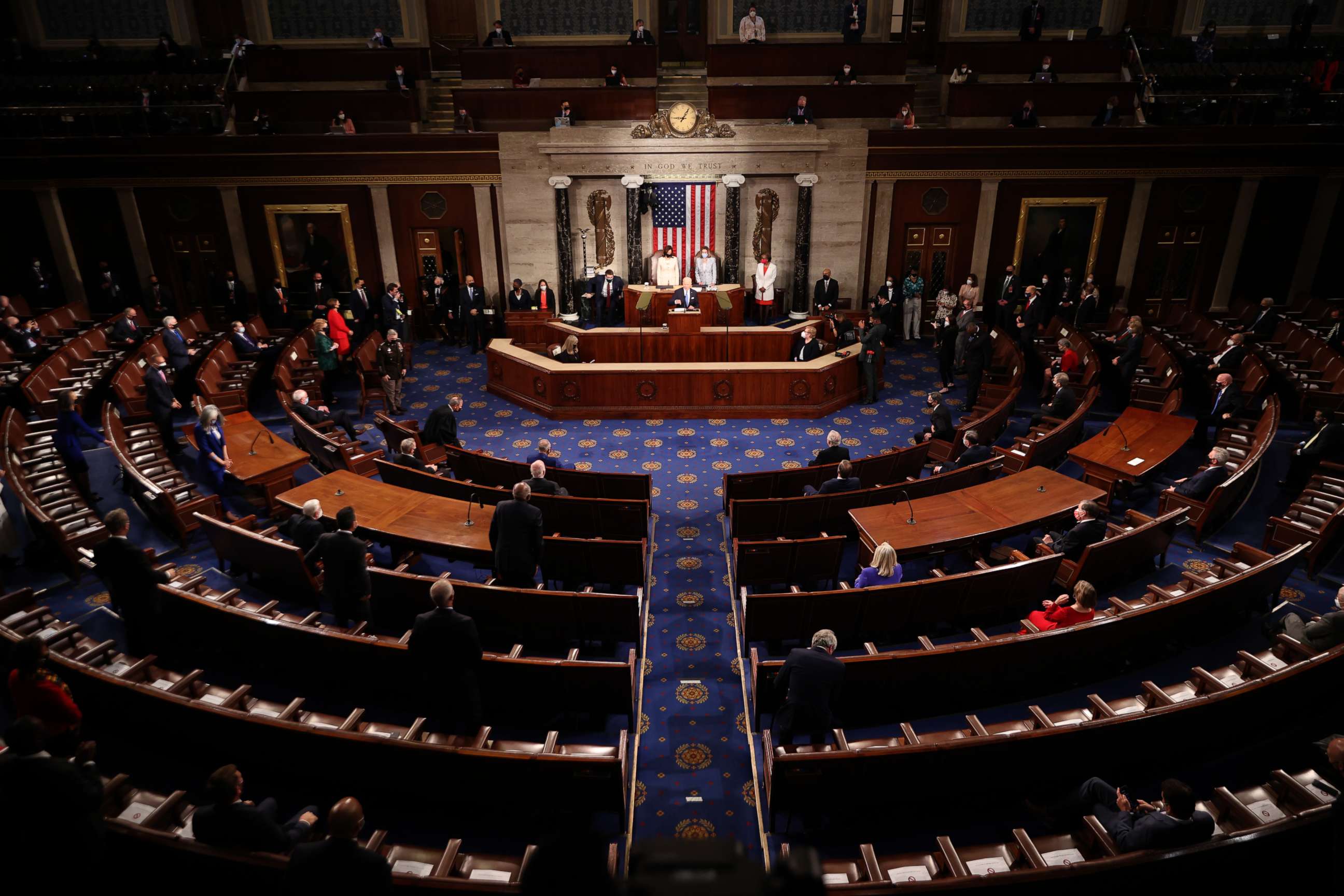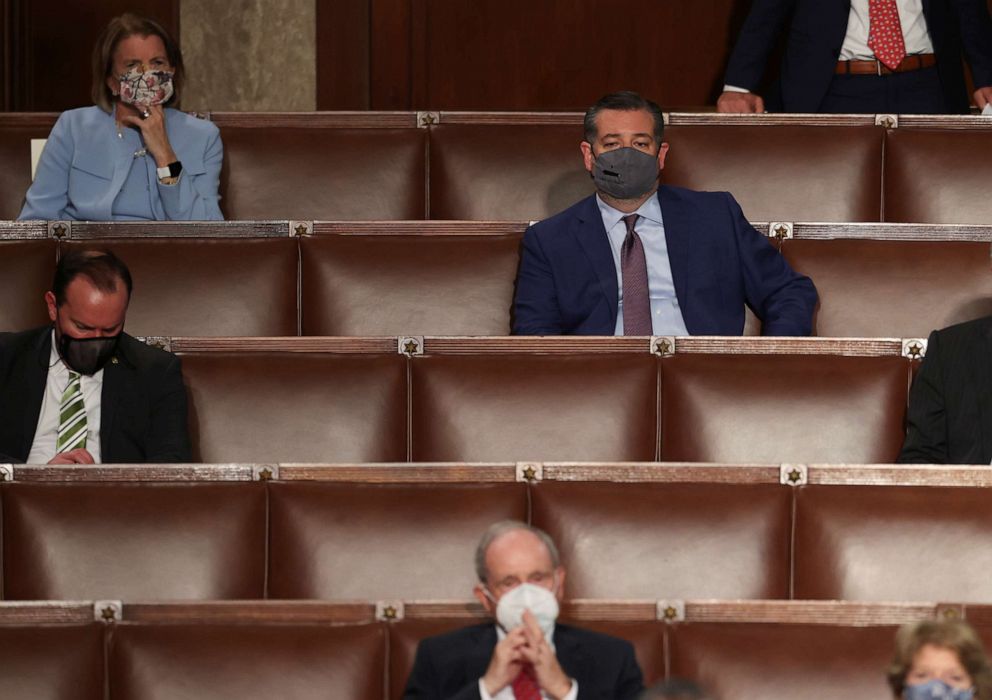Biden champions government's role -- with messages for both parties: ANALYSIS
He championed efforts with Republicans, but signaled limits to his patience.
Of all the sweeping ideas President Joe Biden laid out Wednesday night -- trillions in new spending, vast new investments in health care, education, the environment, infrastructure, police reform and more -- the most grandiose notion he offered may be the concept that national unity is possible, and maybe even close at hand.
Perhaps more notable is how he sees the nation getting closer to his vision of "one people, one nation, one America."
The progress Biden sees coming depends on government -- new spending, new programs and new opportunities powered by dramatic increases in government spending -- even if that means essentially forgoing goals of bipartisanship.
"These are the investments we make together, as one country, and that only the government can make," the president said.
Biden has at times seemed conflicted between the deal-making lawmaker he was over decades in the Senate, and the opportunity he sees for making transformative changes as president. His first address to a joint session of Congress had him edging toward the latter persona over the former.

The divisions and anxieties of the moment in the nation were evident enough inside the House chamber. Biden spoke in front of a sparse and masked crowd, just four months removed from an unprecedented assault on the very room Biden was speaking in, aimed at keeping the losing candidate in November's election in power.
For all that, Biden brought an optimistic vision: "After 100 days of rescue and renewal, America is ready for takeoff, in my view."
Biden explicitly called on Republicans to join his legislative efforts, and put Vice President Kamala Harris in charge of the push for infrastructure reform. Yet a careful listen reveals an important caveat: His message is not about erasing partisan divisions so much as trying to ignore them.
He thanked Democratic leaders and "the overwhelming support of the American people" for helping pass a COVID-19 recovery package -- without noting that the bill got not a single Republican vote.
And while he championed efforts to advance conversations with Republicans, he also signaled limits to his patience.
"I welcome those ideas," the president said. "But the rest of the world isn't waiting for us. I just want to be clear: From my perspective, doing nothing is not an option."
Biden framed his push for infrastructure as part of a broader struggle with China. Similarly, he recast infrastructure investments and addressing the climate crisis as a fight for American jobs.
"American tax dollars are going to be used to buy American products made in America to create American jobs," he said. "That's the way it's supposed to be, and it will be in this administration."
On taxes, Biden reiterated proposals to increase taxes on corporations and the wealthy -- putting the Trump tax cuts in his crosshairs.
"Trickle-down economics has never worked," Biden said, drawing stone-faced responses from Republicans in the room.

Biden went on to call on Congress to, among other things, approve his spending plans, address gun violence, pass immigration reform, approve a federal voting-rights bill and finish criminal-justice reform by Memorial Day weekend, to coincide with the anniversary of George Floyd's death.
History is stacked against Biden in getting much or even any of what he's asking Congress for. The last four presidents -- two Democrats and two Republicans -- came into office with their party in full control of Congress, only to see both the House and Senate gone by the time they left power.
First midterms -- for Biden, now only 18 months away -- have been particularly brutal to presidents' fortunes. And no modern president has gone into them with such thin majorities in either the House or Senate, much less both -- or, arguably, has taken office at a time of such deep political divisions.
More immediately, Republicans aren't on board at all for the Biden agenda, and neither are all Democrats. Biden continues to face criticism from his left for not going bigger and bolder, from the center for big new spending plans and pushing bills that have no GOP support, and from the right for, well, just about everything.
The Republican response from Sen. Tim Scott, R-S.C., seemed to implicitly acknowledge Biden's personal popularity -- though not the popularity of the ideas he's advancing.
"Our president seems like a good man. His speech was full of good words," Scott said. "But three months in, the actions of the president and his party are pulling us further and further apart."
Biden, of course, knows the congressional math -- but also sees broader forces are at stake. The multiple overlapping crises he faces are daunting, though Biden sees even more than those in the balance.
"The question of whether our democracy will long endure is both ancient and urgent," Biden said. "Can our democracy deliver on the most pressing needs of our people? Can our democracy overcome the lies, anger, hate and fears that have pulled us apart?"
Those are unanswerable questions at the moment. For Biden, though, the questions that can be answered have similar answers -- with government as a powerful solution.




